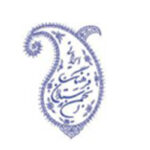Celebrating International Women’s Day: A growing community initiative in Mississauga
In honour of International Women’s Day, the Bahá’í community of Mississauga, Ont. collaborated with a local organization to reflect on efforts to advance gender equality.
The Bahá’í community of Mississauga, Ont. collaborated with a local organization to host the event, which was attended by Bahá’ís and their friends.
On March 9, 2025, a diverse group, including Bahá’ís and their friends, gathered at a local community centre to celebrate International Women’s Day.
The event, which started as a small online gathering the previous year, grew significantly in both size and impact, demonstrating the power of taking the first step and learning along the way.
The program highlighted women’s contributions to society and inspired meaningful conversations. The first speaker, Deborah Riddle, Executive Director of the EFRY Hope and Help for Women introduced the organization, which supports women and girls at a higher risk of experiencing violence, poverty, and incarceration.
Ms. Riddle shared the inspiring history of Elizabeth Fry, a 17th century British prison reformer who mentored Florence Nightingale, and how her legacy continues to uplift women facing difficult circumstances today. One of EFRY Hope and Help for Women’s projects involves recording incarcerated mothers reading stories to their children, allowing for this simple yet profound connection.
The second speaker, Nooshfar Afnan, explored the Bahá’í perspective on gender equality. She emphasized that the oneness of humanity is a fundamental spiritual principle closely connected to the equality of women and men and that world peace depends on the full participation of women in all aspects of society. According to the Bahá’í Writings, men and women have always been equal in the sight of God, and education is central to the advancement of women and girls.
Ms. Afnan provided examples from the history of the Bahá’í Faith that illustrate these principles, including the establishment, in 1911, of a Bahá’í school for girls in Iran (Tarbiyat-i Banat). Dr. Susan Moody, an American Bahá’í who arrived in Tehran in 1909, assisted with its establishment and provided medical care to women. Contemporary examples were also highlighted, including the Banani International School in Zambia and the Barli Development Institute in India, which empower young women through education.
Mr. Rowshan Shaheed recites a poem titled “A Vision for Her” that speaks of the contributions of women across cultures and generations.
The event was further enriched by artistic elements. Attendees enjoyed two musical selections: “Be Happy,” by Max Weigert, based on the words of ‘Abdu’l-Bahá, and “One Tree,” by Ali Youssefi. A heartfelt poem, “A Vision for Her,” by Rowshan Shaheed, celebrated the resilience of women across cultures and generations.
After the program, everyone shared a potluck meal, with many of the participants breaking their fast together with delicious dishes representing the diversity of cultures present. The room was filled with warmth, joy, and conversation as people of all ages and backgrounds reflected on themes from the program.
This event reinforced a valuable lesson: meaningful change begins with a single step. By taking initiative, learning from experience, and fostering unity, small efforts can mature into traditions that strengthen the fabric of community life.
-The Bahá’í community of Mississagua
Category: Community life, Features, Uncategorized








